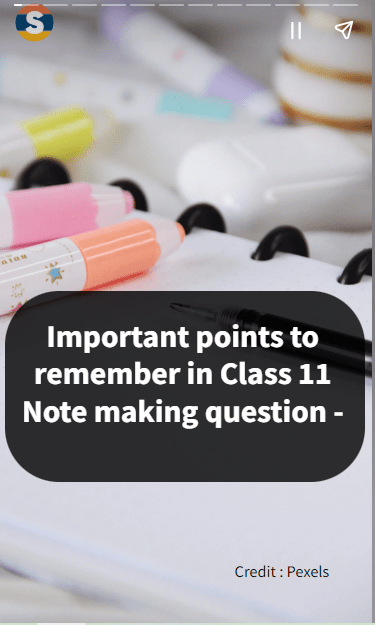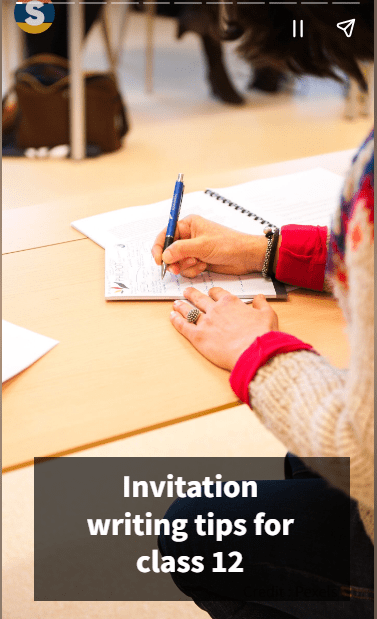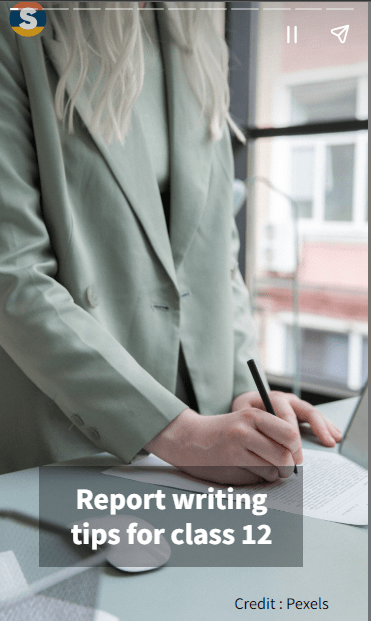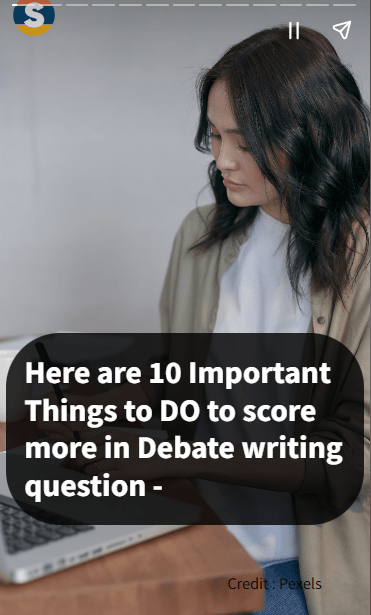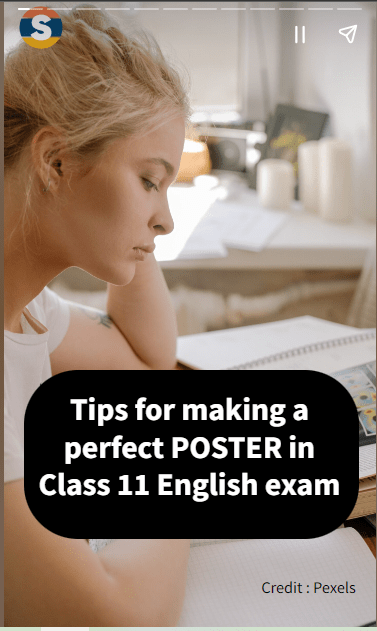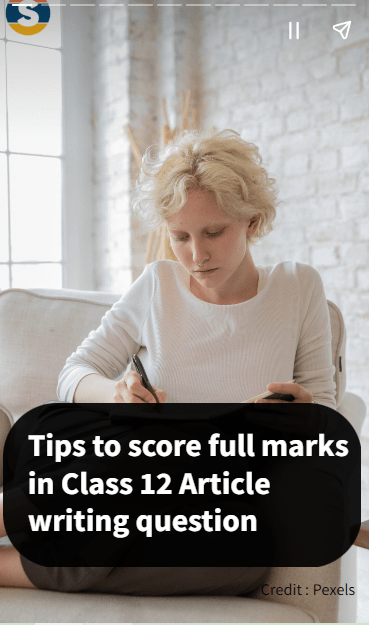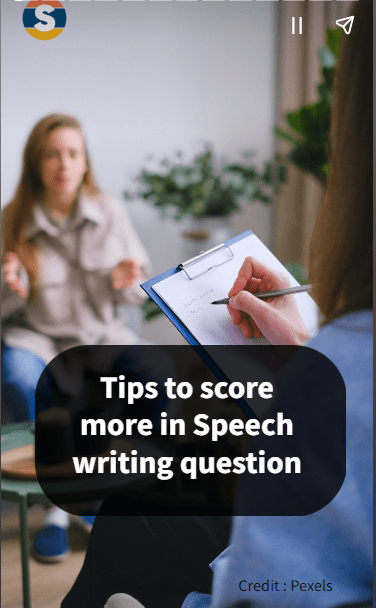Debate Writing | Format for Debate Writing | Debate writing topics and examples
All you need to Know about Debate Writing Class 11
Debate writing is an important topic for class 11 students as questions of debate writing usually comes in the exams every year. if you want to know all about debate writing, tips for writing a debate, do’s and don’ts, debate writing examples and questions from previous years question papers, bookmark this post. In this post we have also added a video explanation on the topic of debate writing where our expert teacher has explained everyting in simple words.
ONE-STOP DESTINATION TO WRITING THE PERFECT DEBATE IN YOUR CLASS 11 EXAMINATION.
It is better to debate a question without settling it than settling a question without debating it.
- What is Debate Writing?
- Debate Writing Video
- Debate Writing: How to go about it?
- DO’S AND DONT’S
- Debate Writing Samples | Debate Examples
- CBSE Class 11 English Lesson Explanation, Summary, Question Answers
- CBSE Class 11 English Hornbill and Snapshots Books MCQ Questions
- CBSE Class 11 English Important Question Answers
- Hornbill Book Word Meaning
- Hornbill Book Poem Word Meaning
- Snapshots Book Word Meaning
- 10 Examples of Debate writing
What is Debate Writing?
A formal discussion on a particular matter in a public meeting or legislative assembly, in which opposing arguments are put forward and which usually ends with a vote.
E.g. “Last night’s debate on the Education Bill”
In the writing section (Section-B of the exam), it comes as a long answer type question (5 marks). Generally, there is a choice (internal) and students have to attempt any one question on debate writing.
When it comes to writing debates during exam, we have to be smart and wise with our choice and length of words. This is because there are time constraints and within that time constraint, we have to impress the person checking it. So, without any further ado, let’s know how to write a perfect debate.
The first and the foremost step is to choose the side, whether you want to write for, or against the motion. Always try to select the side you personally want to support and have more material information to write on. It is preferable to make a choice during the reading time.
An ideal debate must consist of 4 paragraphs, namely, Introduction/Salutations, Problem, Solution and the concluding part. Let us discuss each of them in detail.
Introduction- This includes salutations and the topic (including FOR/AGAINST the motion).
For Example:- Good morning everyone. Esteemed judges, honourable guests, respected teachers and my fellow students. I, (name given in the question or else, XYZ) feel honoured to have been given the opportunity to speak (FOR/AGAINST) the topic- (name of the topic).
Body (Problem)- This is the main paragraph or the body of your answer.
- Always begin with the meaning of the topic or the explanation of the topic in not more than a line.
- Then start quoting the issues. Now here, it is important you follow a sequence. It is possible that you have too many points or very few points. When you have a lot of varied points, it is better you choose a few best ones and write a line on each. In case you have very few already, explain them in at least two lines each.
- Make sure you are clear with your thoughts, only then you’ll be able to put them into words unambiguously.
Solution- “For every problem, there is a solution.”
This paragraph needs to be short and crisp whereby; you are supposed to give a rational and practical solution for all the above problems.
- In case you are not able to figure one out, keep in mind a few general ones. It could involve spreading awareness, campaigns, stringent laws and their strict implementation, education, etc.
- Using a quote never hurts. It can be general ones like, on working together. Every situation can be faced and solved if there is unity. So here are a few handy ones.
“Wherever there is unity, there is always victory. “
“Unity is strength.”
“United we stand, divided we fall.” And many more.
Conclusion- This part involves clarification of your statement and stance along with thanking the audience for being such patient listeners. This paragraph needs to be short and precise.
Here also, you could add some glitter to your art piece with some quotes like “The word IMPOSSIBLE itself says, I M POSSIBLE.”
Talking about marks, it comes as a 5 marks question. The breakup for which (as per CBSE Marking scheme for 2023-24) is as follows:-
Format (opening address and conclusion) | 01 mark |
Content | 02 marks |
Expression
| 02 marks :-
|
Total | 5 marks |
Top
Debate Writing Video
Debate Writing: How to go about it?
When writing a debate for class 11, some important points to keep in mind include:
1. Understanding the subject: Do thorough research on the topic to help you make an informed argument.
2. Structure: A discussion should be well-organized, with a concise introduction, main body, and summary. The body of your essay should contain your points and counterpoints, while the conclusion should restate your main points and clarify your position. The introduction should describe the subject and provide background information.
3. Give them Proof: Back your assertions with strong, applicable evidence, such as statistics, professional opinions, and examples from the real world.
4. Logical Flow: Make sure your arguments and counterarguments follow one another and make logical sense.
5. Objectivity: Make an effort to offer a fair and impartial analysis of the subject, taking into account all available information.
6. Persuasion: Your goal is to persuade your audience to share your point of view, so be careful to offer a compelling case that takes into consideration any rebuttals or counterarguments.
7. Clarity: Use clear and concise language that is easy to understand and presents your points effectively.
8. Referencing: Properly cite any sources you use in your debate to demonstrate credibility and avoid plagiarism.
By following these guidelines, you will be able to write an effective and persuasive debate for class 11.
DEBATE WRITING DO’S AND DONT’S
DO’S
- Before you begin writing, write down all the points (one/two words per point) at the back of your answer sheet (rough sheet) so that you do not forget relevant points while writing. This also helps you in maintaining a sequence, which is very important.
- Make sure you double check for grammatical accuracy and spellings. They carry marks.
- Leave adequate number of lines between paragraphs to make it look clean.
- Underlining the main points is very important. But it is advised to do it after finishing your exam. Use a pencil and scale for underlining.
- Always have a few general quotes in handy. They help in presentation and shows that you’re prepared
- Presentation is very important.
- Read a lot of debates to get an idea.
- Have information about all the major environmental, political, social issues that have taken place during the entire year. The Sample Question Paper 2018-19 released by CBSE consists of a question on “Social Media and it’s effects”. It can be linked with a lot of problems we are facing today on personal and on global level. Example- Spreading of fake information, Mob lynching, reduced physical activities in children resulting in poor health, etc.
- Practice previous year Question paper questions.
DONT’s:-
- Never mention any of your personal details, i.e., name, school name or address.
- Never write in one go. Make sure you follow the right format and make paragraphs.
- Don’t use slangs or short forms.
- Don’t write wrong facts.
- Try not to exceed the prescribed word limit of 120 – 150 words.
- Do not invest too much time in just this question.
ALL THE BEST.
-EXPRESS AS WELL IMPRESS.
SAMPLE QUESTION PAPER- MARKING SCHEME
Debate Writing Samples | Debate Examples
Below are a few samples for you to look at so that you get an idea as to how to write debates during the exam. Remember, the more you read and practice, the better it is. As per, CBSE guidelines, it should not exceed the prescribed limit of 150-200 words.
Q1. You are Mukul / Mahima of Alps Public School. Your school has organized a debate on “Social Media and It’s Effects” and you will be participating in your school. Prepare your views against or in favour of the motion. (120 – 150 words) (5)
(Source- CBSE Sample Question Paper 2018-19)
SOCIAL MEDIA AND IT’s EFFECTS
FOR THE MOTION:
“We are all now connected by the internet, like neurons in a giant brain”
Honourable judges, teachers and my worthy opponents thank you for giving me the opportunity to join this debate on the topic, “Social Media and It’s Effects”. I am Mukul/ Mahima and I would like to speak in favour of the motion.
How many people do not have a smile on their faces on finding an old friend on Facebook? Well, social media has removed all the barriers and boundaries to communication by bringing the globe on a single platform. While business opportunities have widened, marketer’s reach has broadened. It keeps us updated about everything going on in every nook and corner of the world on a real-time basis.
From emergency alerts, announcements and declarations to knowing how our friends are doing has all become so convenient. It provides freedom of speech and thus, enables everyone to speak their mind. Not to forget the incalculable access it provides to the extensive information.
With so much advancement and innovation, it would be an unimaginable world without having social media in it. Someone has rightly put it into words by saying,
“Social media is addictive precisely because it gives us something that the real world lacks: it gives us immediacy, direction and a value as an individual.”
Thank you.
AGAINST THE MOTION:
What a world it is, with everyone on their phones, all the time, faking their lives and keeping a count of their likes?
Good Morning, ladies and gentlemen! I am Mukul/ Mahima and my topic for the day is, “Social media and its effects”. I would like to speak against the motion.
It has now become doubtful to trust the saying that goes like “Technology was developed to save time and make our lives easier”, because people have become addicted and unproductive. It takes a lot of effort and discipline to stay away from social media. Results have shown that it has had adverse effects on human minds and their functioning. Outdoor activities among children have also reduced significantly.
No doubt it provides access to useful information, but, it is hard to ignore the quantum of fake news that spreads like wildfire and the extent of impact it has on the society. In fact, fake whatsapp forwards was a clear pattern that was observed behind the recent mob lynchings or rather, “Death by social media”.
It is one of the reasons behind insecurities and depression among teenagers. It is right that technology was introduced to save time, but we forgot to mention, “In the right amount”Â. So, remember, you leave the present moment every time you check the phone.
Thank you for your cooperation and patient hearing.
Q2. “Academic excellence is the only requirement for a successful career.” Write a debate either for or against the motion. (120 – 150 words) (5)
(Source- CBSE Question paper 2017-18, set-1)
ACADEMIC EXCELLENCE IS THE ONLY REQUIREMENT FOR A SUCCESSFUL CAREER.
FOR THE MOTION:
“The beautiful thing about learning is that no one can take it from you.”
Respected judges and my worthy opponents, I stand before you all to speak in favour of the motion: “Academic excellence is the only requirement for a successful career”.
Right to Education is the fundamental right of every child in the age group of six to fourteen years. The education system in the primary years is designed so as to provide basic knowledge of each subject and help the youth of today to choose their subject of interest for its deeper study that can only be provided effectively through universities. It plays a key role in the development of society and nation. Information cannot be converted into knowledge without education. Education makes us capable of interpreting things, among other things.
It helps in raising future leaders by providing them clear understanding and developing decision making abilities. It makes them resourceful and competent. Excellence in academics prepares children for the competition ahead and teaches them to work hard as well.
Moreover, Excellency will ensure admission to the best universities for higher education that provide exposure and a kick start to their career. To conclude, I would say that one who has it’s academic future choices sorted out, has it’s career planned out.
“The goal of education is the advancement of knowledge and the dissemination of truth.”Â
Thank you.
AGAINST THE MOTION:
Good morning, ladies and gentlemen! My topic for the day is “Academic excellence is the only requirement for a successful career” and I choose to speak against the motion.
“The goal of education is to raise the leaders of tomorrow”. But my question is, How is it that most of the leaders of today happen to be college dropouts? This is because having degrees cannot ensure success. It fails to impart the life skills and polish personality of an individual. They can surely give you an overview of a subject but fail to provide an overview of how the world works. It does not ensure skills and competencies. It tells people what to think instead of how to think and the end results is that, the society now has just robots who have switched their minds off only to believe what is being taught.
One’s attitude towards life is what brings success. Undoubtedly, academic Excellencies can provide you degrees or may even land you at a job, but, your success depends upon how you think, behave, walk, talk and present yourself. It has been rightly said,
“Education produces great employees in the market, not employers”.
Thank you.
Q3. “ONLINE SMART CLASSES ARE THE FUTURE OF EDUCATION STYLE”. Write a debate either for or against the motion. (120 – 150 words). (5)
ONLINE SMART CLASSES ARE THE FUTURE OF EDUCATION STYLE
FOR THE MOTION:
Honourable judges and worthy listeners,
“If you are so old minded and think that computers will be distracting children from studies, with a sincere sorry for you, let me tell you that the young generation has gone a long way with computers!”
Thus, I am here to talk about the endless possibilities of computer and internet based teaching methods.
When most parents think of learning from computers, socializing websites like facebook appear before their eyes. It is the biggest cyber tragedy. There are definitely a large number of sites beyond just facebook.
Udemy, Coursera, Khan academy, Byju’s teaching app, the list of online teaching platforms is endless and ever growing. There are millions of students and teachers who use these websites and apps for their exam-preparation. They are mostly free and it is what makes one turn away from traditional paper-guides. With a smartphone in every hand, city and village alike, these online libraries are within everyone’s reach.
Google has already replaced the word Guru to become the greatest knowledge-provider.
With seven hundred billion population and six hundred trees, it is the need of the century to go paperless. In this context you can find no better solution than eLearning.
Rather than living the life of a consumer, let’s be contributors. Instead of buying paper books, let’s buy eBooks. Instead of collecting a thousand books in our shelves, let’s convert our phones or computers into virtual libraries and learn.
Thank you.
AGAINST THE MOTION:
Good morning, ladies and gentlemen! My topic for the day is “Online Classes are the Future of Education Style” and I choose to speak against the motion.
Online learning or e-learning refers to learning conducted via electronic media, typically on the Internet. There is no face-to-face interaction between the teacher and the student. It decreases the scope of adjusting and modifying the language or the concept according to various audiences. Moreover, humans are known to be social animals and are thus, more interested in direct tuition than virtual tuition.
There is lack of proper guidance and self-assessment mechanisms. Not only this, it would also reduce employment among teachers.
Since it involves only brain work and not physical work, they tend to get lethargic resulting in altered physiology. Also, it leads to lack of discipline. Attending a school makes one have a time schedule in a day. This helps them learn some good habits like, bathing, breakfast, going to bed at the right time etc. Physical school help children adopt a discipline.
Not to forget the excellent interactions involved in physical learning. People tend to make friends who support them and mentors who guide them. Thus, no matter how fast technological developments are taking place, the traditional way of learning should not be displaced.
Thank you.
Related – Free Online English Test – MCQ Test Series
Q4. ‘Homes for the aged is a necessity in India ‘. Write a debate in 120- 150 words either for or against the motion. You are Shivam/ Shivani.
(CBSE Sample Question Paper 2018)
HOMES FOR THE AGED IS A NECESSITY IN INDIA
FOR THE MOTION:
Old age is often referred to as the crown of life, as it is our play’s last act. Honourable judges, teachers and my worthy opponents, I thank you all for providing me the opportunity to highlight the importance of Old Age Homes in India.
An old age home is a place, a home for old people who have no one to look after them or those whose children have left them on the streets. The place, of course, is like home where the inmates get all the facilities for a routine living, like food, clothing, medicine and shelter. Old age brings with it physical weakness. In case they are alone at home while you’re away, it would be almost impossible to tackle any medical emergency. These centres will take care of them and cater to all such emergencies
Also, burglars usually attempt to break into a house where a lonely aged person lives, murder them without hesitating and loot the house. That’s why it is safer to keep your parents in a senior-care-home when you have to stay away from them for your earning and are unable to keep them there with you.
Thus, it is crucial to have Old age homes in the country because old age needs so little but needs that little very much. Nothing is more important than a smile that has struggled through tears and many years.
Thank you.
AGAINST THE MOTION:
Good morning, ladies and gentlemen! My topic for the day is “Home for the aged is a necessity in India” and I choose to speak against the motion.
There is nothing fundamentally wrong with the whole idea of Old age homes, but just like there are two sides of the same coin, it also has some disadvantages and problems associated to it. Services attract costs. Better the services, higher the costs. Most of the aged population are pensioners or dependent on children which makes it difficult for them to afford good quality care. There is lack of privacy too. The environment is impersonal, which may give rise to feeling of loneliness, which may further lead to depression. They lose the right to decide what to eat and cannot spend time with grandchildren. Also, there have been many incidents of neglect and poor treatment.
They are those people who made us capable and created a world for us. How can we leave them in the cold, that too when they require the warmth of our love the most? Our parents have sacrificed so much for us without asking for anything in return. This makes it our sole responsibility to take care of them when they need it the most, because, in the end, the ultimate luxury is being at home and able to relax with the family.
Thank you.
Q5. Are celebs responsible for the products they endorse? Taking a cue from the headlines given below and using your own ideas, write a debate for or against the topic. (about 150-200 words)
- Amitabh Bachchan steps back from promoting Pepsi after a school girl questions the health impact of the drink.
- Brief ban on Maggi noodles causes trouble for its celebrity Brand ambassadors.
(CBSE Sample Question Paper 2017)
ARE CELEBS RESPONSIBLE FOR THE PRODUCTS THEY ENDORSE?
FOR THE MOTION:
Respected judges and my worthy opponents, today, I stand before you all to accentuate why celebrities are responsible for the products they endorse.
Advertising agencies often pick celebrities because their fan following ensures more eyeballs. The celebrities are the present-day gods. They are adored, venerated, and worshipped by many. Given the fan base and the celebrity power of influence, many questions come up. Are they accountable for what the endorser does? Do they at least have the moral responsibility to understand the product better?
It becomes a misleading advertisement if it is found that the product does not have the attributes that the manufacturer professed. And if the brand ambassador has promoted that product and said specifically that the product has those attributes, they are also certainly liable for action.
The brief ban on Maggi noodles had an implication for its celebrity endorsers. Not so long ago, Amitabh Bachchan stepped back from promoting Pepsi after a school girl questioned the health impact of the drink. Celebrities vouch for the performance of a product; they should first use it before endorsing it.
Public figures have an ethical obligation towards those who follow them and this necessitates a framework that guides them to take responsibility for their public image, which includes the products they endorse. Moving in and out of paid contracts might be a solution for the celebrity endorser but it doesn’t erase the impact of their previously branded image.
Thank you.
AGAINST THE MOTION:
Respected judges and my worthy opponents, today, I stand before you all to accentuate why celebs should not be held responsible for the products they endorse.
Advertising agencies often pick celebrities because their fan following ensures more eyeballs. No doubt the advertisement will attract you, but it’s unlikely that you will buy the product unless you have seen it and tested it. Buying financial products and real estate is more nuanced and, hence, advertisements alone shouldn’t be your guiding light. Consumers need to be more discerning in such cases.
Take the case of Mahendra Singh Dhoni. He did end his contract with the real estate firm but how would he have known that the company would fail to honour its commitment? If it was so easy to determine the intention of the company then the first to exit the deal would have been the home buyers. Or take the case of celebrity tourism mascots for states. Would you blame a celebrity if the state government ends up doing something ridiculous?
Many celebrities endorse multiple brands and it is not possible for them to use all. Celebs endorse brands for money. Don’t make them responsible for the efficacy of the product. There are government agencies to ensure quality for the products sold in their countries and it is justified to make only those people accountable whose job is to certify products.
Thank you.
Q6. ‘Brain drain is not a bane for a developing country like India.’ Write a debate in 150 – 200 words either for or against the motion.
(CBSE)
BRAIN DRAIN IS NOT A BANE FOR A DEVELOPING COUNTRY LIKE INDIA
FOR THE MOTION:
Respected judges and my worthy opponents, today, I stand before you all to bring into light why Brain drain is not a bane for a developing country like India.
Brain drain is a situation in which large numbers of educated and skilled professionals leave their own country to live and work in another country where pay and conditions are better. In a developing country like India, the population is growing at a rate faster than the increase in job opportunities. In such a case, immigration to other countries can be seen to be providing sunshine to dispel the gloom of the unemployed youth.
Moreover, income from the emigrated people comes back to the native country as overseas remittances. India is recipient of the highest amount of foreign currency coming in as remittances from NRIs.
Reverse brain drain, on the other hand, if given attention, can make it a win-win situation. It is a situation in which such people come back to India after acquiring knowledge, skills and abilities, thus adding value to India.
The need of the hour is to encourage reverse brain drain so that India can make use of their tremendous potential, experience and expertise for building a stronger nation. This helps India becoming a developed country very soon and also a global Super Power in the long run.
Thank you.
AGAINST THE MOTION:
Respected judges and my worthy opponents, today, I stand before you all to express my views on the topic “Brain drain is not a bane for a developing country like India”. I choose to speak against the motion.
Brain drain is referred to a situation in which large numbers of educated and skilled professionals leave their own country to live and work in another country where pay and conditions are better. The majority of migration is from developing to developed countries.
This is of growing concern worldwide because of its impact on developing countries. These countries have invested in the education and training of young health professionals. This translates into a loss of considerable resources when these people migrate, with the direct benefit accruing to the recipient states who have not forked out the cost of educating them.
It drains a developing country of expertise at a time when it requires it the most. If the number of skilled people leaving is higher than that of people entering (the so-called brain gain), brain drain can become a challenge, especially if it hits the sensitive spots of a nation’s economy in sectors such as science, health care, or technology.
It is the need of the hour to be in control of the situation. It can be done by providing better opportunity, security, better standard of living and if need be, tax concessions. It’s time to end brain drain and move to brain gain.
Thank you.
Top
Recommended Read
- Note Making Class 11, Note Making Format, Examples, Sample
- 10 Examples of Note Making and Summarizing Class 11
- Poster Making for Class 11: Format, Questions and Examples
- 10 Examples of Poster Making Class 11
- Speech Writing Format, Topics, Examples, Class 11, 12
- 10 Examples of Speech Writing Class 11
- 10 Examples of Debate Writing Class 11
- Learn English Writing Skills
- Essay writing in English, Topics, Examples, and Format
- Ten tips on writing a good essay

